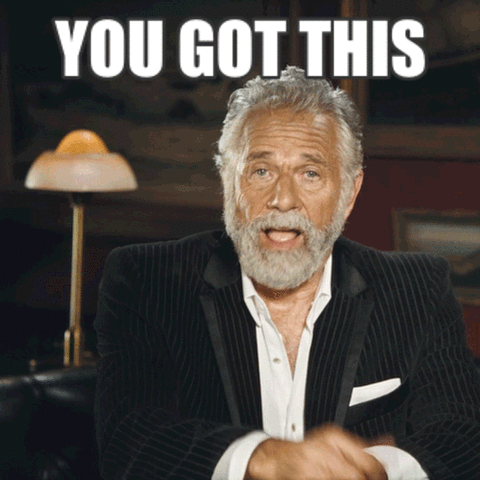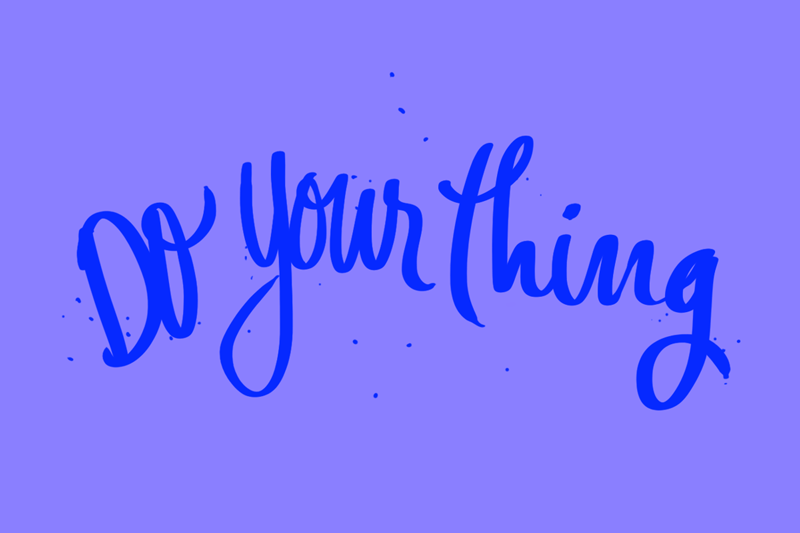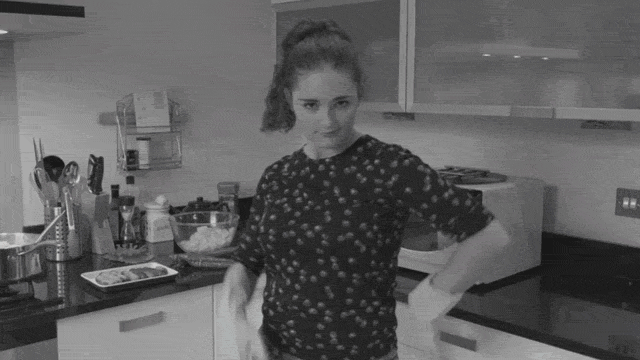The Week of the Audition:
- Accept that most of the work you can do has been done and work only on maintaining what you have already done. This means lots of slow practice of sections that are of concern, mixed with some run-throughs. Don't go for any major changes. Just maintain what you know already.
- Play for others. Schedule a few "performances" of your piece for your friends, family, or your band members. Playing in front of everyone you know in the band is way more intimidating than playing for a judge or two at auditions, so enjoy the experience of that once. That will make the audition feel so much more intimate and fun.
- Avoid what I call the "vortex of despair." Remember, what's done is done. You are now ready for the audition step. If for some reason you feel you don't know your piece well enough, take note of that for a future audition and let the chips fall where they may this time around. You cannot change the past, but you can change how you react today (and for future preparation). Go into this with a feeling of acceptance. Accept where you are and how far you have come. Save the "could have/should have" stuff for helping you to decide what to do better the next time around.
- Play other music to keep your mind fresh. Enjoy yourself a little. Distract yourself a little. You deserve it.
- Eat breakfast, bring a snack, and hydrate. Be sure to drink lots of water. It's OK to bring a water bottle into your audition too if you need a sip to wet your mouth before you play.
- Treat yourself to a thorough warm-up. If you play anything on audition day, this is the top priority! Be sure to warm up slowly, completely and thoroughly. Play down into the low register. Play slowly up into the high register. Play octaves. Work at finding the beauty of your tone. They usually put students into a large auditorium or cafeteria to warm up at these events, and this can be total mayhem as people frantically (and loudly) play their scales and their piece. Ignore this and quietly stand facing directly into a wall or a corner of the room where your sound can be reflected back to you, and do a pre-flight check on your tone, tonguing, embouchure, vibrato, and anything else that you usually work to maintain. That you find the sound (and control) that you know and love is more important than anything else.
- If you can stand it, don't play your piece at all in the warm up room! You will hear lots of people playing fast and loud. Most people play the parts they know best over and over in these rooms. Don't fall into this trap. Either don't play your piece at all, or if you must, practice starting and ending it, and play slowly and carefully through any passages that require extra concentration. Save the "performing" for the performance. The goal here is to leave your mind with the feeling that you are ready, and that the last memory you have of playing before you walk into the room is of being in control of what you are doing.
- If socializing makes you nervous, then...don't! Bring earbuds or headphones. Listen to music. Read a book in a corner. Keep to yourself if you must. Just politely tell people you need to de-stress. You can socialize afterwards.
- While waiting outside the audition room, remember that everyone sounds better through the door. Really. It's true. Make no comparisons. Close your eyes, ignore it, and accept who you are.
- Don't expect miracles. One reason why people sometimes get nervous is because they are hoping that they will miraculously play better than how they usually play. Let go of this thought in your mind. Expect to play how you usually play, and it will free you from the burden of hoping to produce a miraculous performance. This leads me to #2:
- Be YOURSELF. Don't try to be what anyone might want you to be. Don't try to be some other flutist you just heard. There's no point in trying to guess what might impress the judges. Impress yourself! Be your truest self and you will play your best when it's coming from your heart.
- Take your time. There is no need to rush. Take a moment to breathe deeply, maybe 3-5 deep slow breaths, before playing. You don't need to launch into anything immediately. Clear your thoughts. Hear the tempo in your head before you play. Be in position for a moment and feel what it feels like in your mind to start well before your start. Imagining the feeling of it being right and trusting that will happen goes a long way.
- Use keywords. This should be figured out in advance but have one or two special words you use to remind yourself of the general feeling you want to have or convey with each selection you play.
- Live in the moment. Nothing can be done about what happened in the past, so allow any mistakes to slide away without judgement. Nothing can really be done about that tricky part halfway down the page either (until you get there) so pool all of your mental resources into thinking about what you are doing now. Just keep thinking, now, now, now. Bring your mind back to now.
- Find something to love. This one is probably the most important aspect of performing for others. Go within the protective shell of your own self, and find what you love about your playing or the piece. The biggest gift a listener can receive is feeling your own love, joy and enthusiasm coming out in your playing. Mistakes dim in comparison to playing with feeling and conviction.
- Slow down. Often, we play a bit too fast in exciting situations like auditions. Better to play more slowly and well in control than to take off like a shot and realize you are too fast. I personally would rather have a slight deduction for tempo but get full credit for every other factor.
- For sight reading, take your time. Really scan the music before playing. Look at the key signature and time signature first, and then scan with your eyes for anything that looks tricky (rhythms, technical passages, notes) and spend a moment reviewing those parts in your mind. If you are taking too long, they'll let you know it's time to play. My personal order of priorities that I teach my students for sight reading is: rhythm first (even if you play made up notes during certain passages), notes second, and then all the rest (articulation/phrasing/dynamics/expression). Playing in rhythm proves you won't get lost in a group, so be sure that is your focus. Be ok with faking it and have fun releasing yourself from the obligation of perfection! This release will actually allow you to be more musical.
- Smile and thank the audition committee. They have to sit there all day listening to people play. A little thanks goes a long way.
The result of an audition can be a bit subjective. You cannot control the mood of the judges, their personal preferences, or anything else. All you can be is your own awesome self and see what happens. When it's over, no matter how it goes, you will still be the same amazing person you were before. The result of one audition has no bearing on who you are as a person and a player. The effort you put into your playing, and the love that you show for your music is more important than where you rank.
Happy Auditioning!!! If you have any suggestions to add, or a question to ask, please comment below.




 RSS Feed
RSS Feed